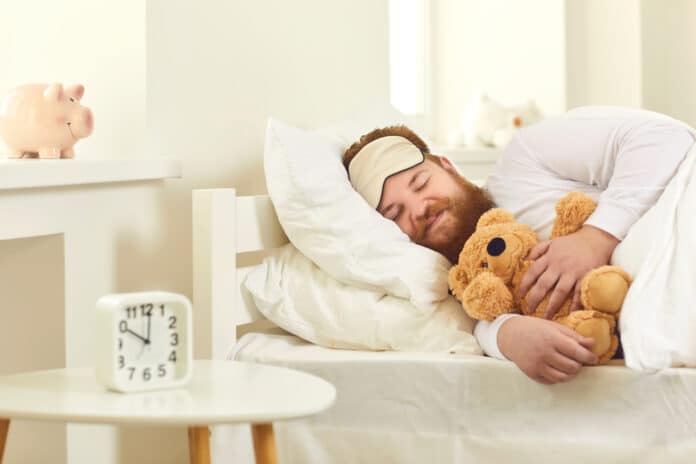
It can be challenging to get back to sleep when you wake up unexpectedly at night. This article covers tips that can help you doze off again and stop waking up mid-sleep in the first place.
Forget About The Time
After waking up in the night, it can be tempting to check the time. However, worrying about how much time you’ve lost only makes it more difficult to sleep. Instead, resist the urge to check the time on your phone to help your mind relax and get back to sleep.
Move To Another Room
If you’ve been awake for at least 20 minutes, avoid turning on bright lights and move to another room. By switching to a new environment, you can find it easier to drift off to sleep.
Stay Away From Screens
The blue light from your phone or laptop tells your brain it’s time to wake up. Keeping these devices out of reach can help you return to sleep faster.
Count Backwards
If your brain is too “busy” to sleep, you can turn it off by counting backward. This shifts your focus from past issues and future worries and forces it to stay in the present. When this happens, you feel relaxed enough to have a good night’s rest.
Avoid Being Productive
The middle of the night isn’t the right time to get a head start on work or be creative in the kitchen. Instead, stay as inactive as possible to give yourself the chance of falling asleep again.
Unwind at Bedtime
You can help your mind relax by listening to a calming podcast or soothing music. Another option is to practice easy yoga poses. When you fall asleep with a quiet mind, you’re guaranteed to stay asleep.
Ease Your Muscles
Your muscles need to be at ease to help you fall asleep. This can be achieved using a technique called progressive relaxation:
● Flex the muscles in your toes for 5 seconds, then relax.
● Take a slow, deep breath.
● Repeat these steps on your legs, backside, belly, chest, arms, and face.
Have a Noise-Free Bedroom
A noise-free bedroom stops your brain from hearing sounds that can wake you up. You can achieve this with earplugs or using a white noise machine to block sounds out.
Reduce Your Caffeine Intake
Caffeine triggers your brain to stay awake. It also stays active in your system for 3 to 5 hours after you drink it. As such, you should avoid drinking caffeine after 1 p.m.
Meditate
Meditation can help you quiet those racing thoughts you have before bed. You can sit quietly and focus on your breathing or think of a place that makes you happy.
Conclusion
Sometimes, waking up in the night could be an indication of a health issue like sleep apnea. If you try the tips we’ve covered and still find yourself awake when you should be sleeping, consult your for a reliable treatment option.


















